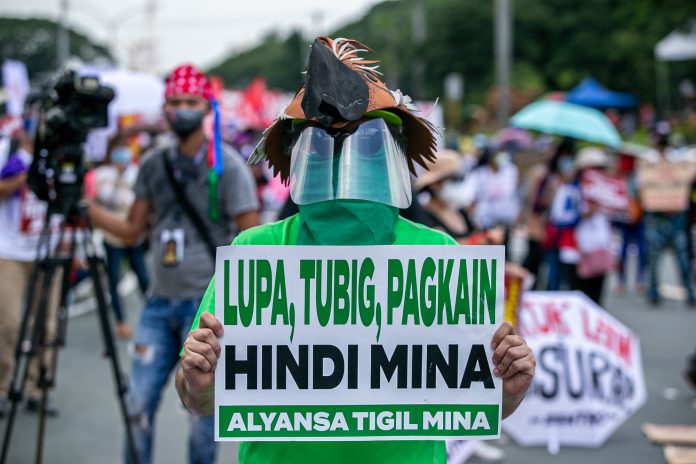Environmental and advocacy groups on Wednesday denounced the Supreme Court’s decision to nullify Occidental Mindoro’s 25-year moratorium on large-scale mining, warning that it undermines local autonomy and opens the door to increased ecological destruction.
The ruling, handed down by the high court en banc, declared the province’s and the Municipality of Abra de Ilog’s ordinances banning large-scale mining as “void” for violating the Philippine Mining Act of 1995.
But civil society organizations said the decision reflects a long-standing bias in national policy in favor of corporate interests at the expense of communities and ecosystems.
“The Supreme Court decision overturning Occidental Mindoro’s ordinance banning large-scale mining is a dangerous and precedent-setting move that exposes the profound flaws of the Philippine Mining Act of 1995,” said the Kalikasan People’s Network for the Environment in a statement dated May 14.
“This decision tramples on the right of local governments and communities to defend their environment and welfare, all in the name of profit for mining corporations,” the group added.
Kalikasan criticized the ruling as a direct assault on the constitutional right to a balanced and healthful ecology.
It accused the Court of siding with “large mining corporations and their foreign backers,” and called for the immediate repeal of RA 7942 and the passage of the People’s Mining Bill, which would place environmental protection and community consent at the core of minerals management.
“For three decades, the Philippine Mining Act has enabled the plunder of our natural resources, widespread environmental destruction, and countless human rights violations,” the group said.
“The law’s neoliberal provisions, such as allowing 100% foreign ownership and lowering corporate taxes, have only deepened inequality and environmental injustice,” it added.
The Alyansa Tigil Mina (ATM) echoed these concerns, saying the decision “has clear repercussions to existing local efforts to resist destructive and irresponsible mining.” While ATM acknowledged the Supreme Court’s legal reasoning, it expressed concern that the ruling “seemingly reduces the police powers of LGUs.”
“We take the SC ruling as a balanced interpretation of our laws on local autonomy and minerals management,” ATM said, “but in the real world where mining corporations and political dynasties rule economic decision and management of our natural resources, this is not a just interpretation.”
ATM urged legal networks to conduct urgent briefings for affected communities and environmental groups “so we may be able to craft our local responses with concerned LGUs.”
The coalition pledged to continue supporting grassroots resistance and to “calibrate our approach” to use all remaining local mechanisms to advance biodiversity protection and climate resilience.
For Living Laudato Si Philippines (LLS), the ruling should not be seen as a total loss for local governments. LLS Executive Director Rodne Galicha stressed that the decision reaffirmed the power of LGUs to assess and reject individual mining proposals.
“Local government units still have the power to say no to mining,” Galicha said. “To those questioning the Supreme Court’s decision, here is what it says about the role of the LGU— and I quote: ‘With regard to the requirement of prior informed consent under Republic Act No. 7160 in relation to Republic Act No. 7942, local governments have the authority to evaluate each application for a mining project to be conducted within their area, express their concerns or objections thereto, and/or withhold their approval, if these concerns are not addressed.’”
“While the decision nullifies the blanket ban, it emphasizes the critical role of LGUs in evaluating applications, raising concerns, and even rejecting projects,” he added. “The ruling puts responsibility on local officials to uphold processes that include public consultation—and the people can hold them accountable.”
The Supreme Court, in a decision written by Senior Associate Justice Marvic M.V.F. Leonen, ruled that while LGUs may express objections and deny permits for individual projects, they cannot impose a blanket prohibition on all large-scale mining activities.
The Court affirmed that the regulation of mineral resources is under the national government’s authority through RA 7942.
In a concurring opinion, Associate Justice Amy C. Lazaro-Javier acknowledged the environmental motivations behind the provincial ordinances but maintained that “good intentions cannot justify the use of powers that go against the law.”
The full decision is available under G.R. No. 248932 (Province of Occidental Mindoro v. Agusan Petroleum and Mineral Corporation) via the Supreme Court’s official website.









